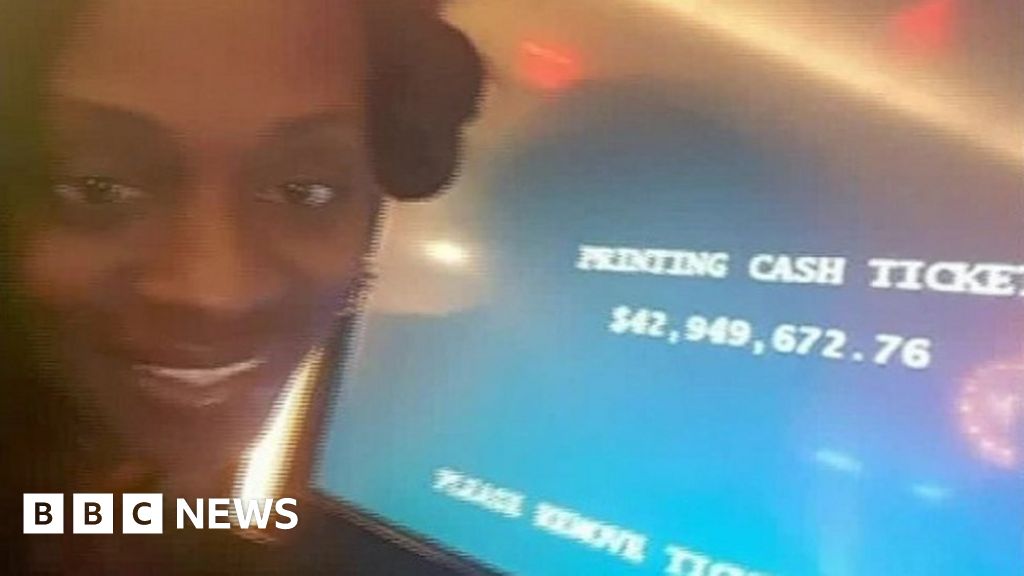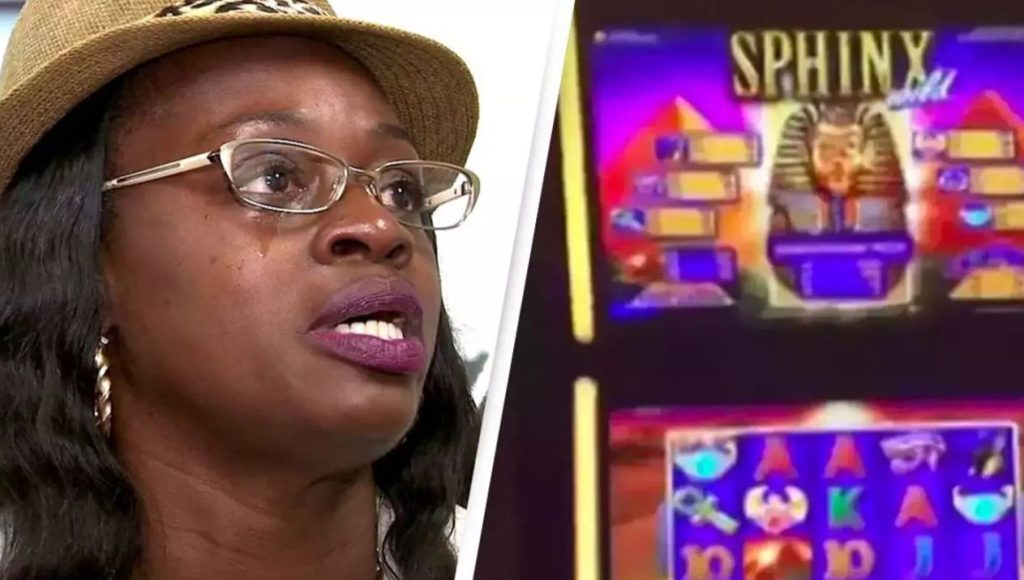In August, a woman named Katrina Bookman was playing a slot machine at Resorts World Casino New York, in New York. The screen flashed a jackpot figure of around $42,949,672, an amount so large that it would have been among the biggest slot wins in U.S. history. Bookman even snapped a selfie next to the display, full of joy and expectation.
The Devastating Twist
The next day, however, her excitement turned to dismay. Casino staff informed her that the machine had malfunctioned and that the displayed jackpot amount would not be honoured. Instead, she was told that her actual payout amounted to just $2.25. The casino pointed to a disclaimer on the machine stating that “malfunctions void all pays and plays.” In an effort to address the situation, they offered her a complimentary steak dinner.

Legal Action and the Grounds of the Lawsuit
Feeling wronged and believing that she was misled, Bookman brought a lawsuit against the casino, alleging negligence and failure to maintain or check the machine properly. Her attorney argued that one cannot simply declare a machine “broken” after the fact in order to avoid a payout. The complaint asserted that Bookman lost not just the money, but the opportunity that a correct jackpot would have provided. She also claimed emotional distress from the abrupt reversal.
The Casino’s Position and Regulatory Framework
The casino maintained that the machine was indeed malfunctioning and that the state gaming authority’s rules required voiding any payout resulting from such an error. In their statement, they noted that the printed payout ticket showed $2.25, and they were required to honour whatever legitimate payout the machine registered. The offer of the steak dinner was described as a gesture of goodwill rather than a substitute for the full amount.
The Broader Context: When Games Go Off Track
This case illustrates a broader issue in the world of casino gaming: what happens when the displayed outcome diverges from the controlled system result? Machines often include disclaimers and printed-ticket systems, but when someone genuinely believes they have won big and prepares their life around that win, the reversal can feel deeply unfair. Regulators tread a fine line between protecting players and preserving the integrity of the gaming system.
The Aftermath and Its Meaning
Ultimately, the legal challenge did not secure the jackpot amount for Bookman. Courts sided with the casino’s reliance on the machine’s disclaimer and payout rules. The result leaves unanswered questions about transparency, fairness, and the protections for people playing high-stakes games. It also underscores how important it is for players to understand the terms of machines, the disclaimers, and the potential for technology glitches.
Lessons for Players and Casinos Alike
For players: large jackpots can be intoxicating, but you should still read the fine print and keep in mind the possibility of malfunction or dispute. For casinos and regulators: the case throws a spotlight on the importance of clear communication, reliable maintenance, and prompt auditing of equipment. When a machine produces a sum so extraordinary, the credibility of the venue and the trust of the public are at stake.

Final Reflections
What started as a potential $43 million win ended in mere dollars and a steak dinner. The story serves as a cautionary tale in gambling: massive wins can vanish, not because the player didn’t hit the right spin, but because the system declared itself broken. The human cost — the dashed hope, the time invested, the emotional impact — remains profound. For Bookman, the memory of snapping that selfie stands in stark contrast to the reality she was handed. And for observers, the tale raises fundamental questions about fairness in the gaming world.

















